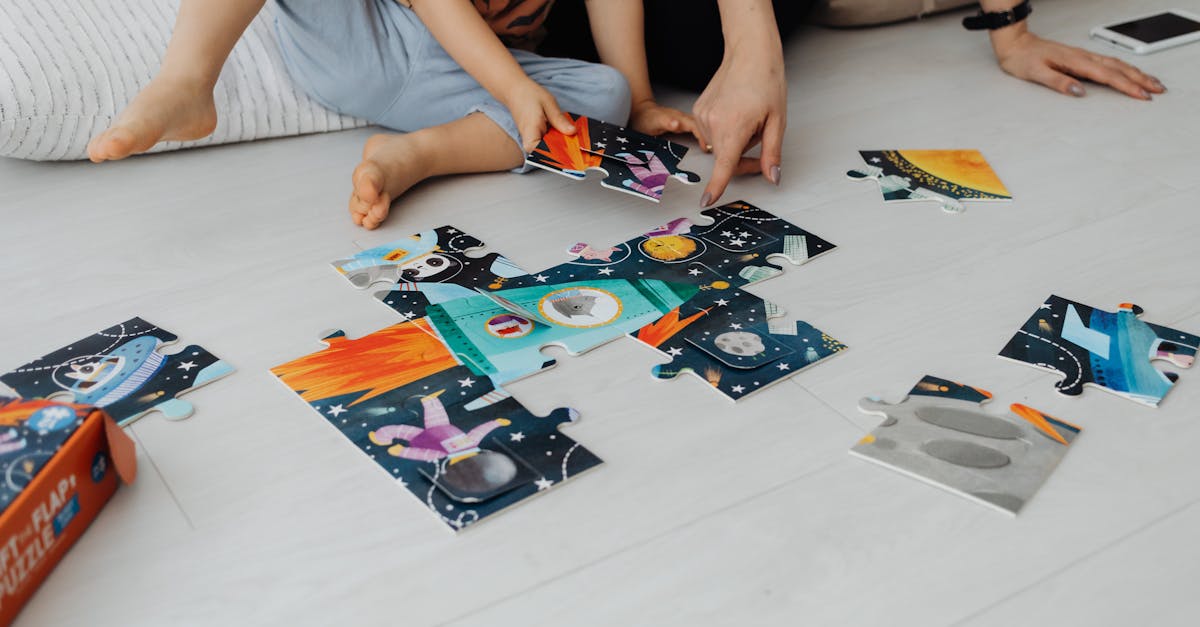The Power of Puzzles for Brain Development
Research proves it: puzzles are powerful tools for brain development in kids. By solving puzzles, kids enhance their cognitive skills, including critical thinking and problem-solving abilities.
Picture this: puzzle pieces coming together, not just on a board but in their brains! Isn’t that fascinating? When children engage with puzzles, they are unknowingly preparing themselves for bigger academic challenges. Just like how a superhero strengthens their powers, kids can boost their brainpower through these fun activities!

So, next time you see a child solving a puzzle, remember, it’s not just a game—it’s a brain-boosting exercise!
Choosing the Right Puzzle Games
With a bazillion options out there, picking the right puzzle games can get overwhelming. Opt for age-appropriate puzzles that challenge but don’t frustrate.
For toddlers, start with simple shape sorters, and gradually introduce more complex jigsaw puzzles and brain teasers as they grow. Toss in a mix of both digital and physical ones.
Ever seen the sparkle in their eyes when they finally crack a tough one? Pure magic! Watching this triumph is akin to witnessing their mini victories that pave the path to lifelong learning.

Balancing Screen Time with Physical Puzzles
Digital puzzles are great, but nothing beats the good old physical ones for a balanced brain workout. It’s crucial to manage screen time while still offering engaging options online. Often, physical puzzles provide a multi-sensory experience that digital ones can’t.
Ever watched your little one connecting tangible pieces? It’s like watching them connect neural pathways in real-time! Remember, moderation is key. A balanced mix of screen time and hands-on activity creates a harmonious blend of old and new school fun.

Incorporating Puzzles into Daily Life
Make puzzles part of your daily routine without turning it into a chore. Slide in a quick puzzle session during family time, or drop a puzzle game into your child’s solo play activities. It’s a sneaky yet effective way to develop their critical skills while having fun. Perhaps, you could even declare a ‘Family Puzzle Night’! Imagine the joy of all sitting together, solving puzzles, and not noticing the clock ticking away. Integrating puzzles seamlessly into everyday activities can effortlessly stimulate brainpower while creating cherished family memories.

Puzzles and Emotional Resilience
Puzzles teach more than critical thinking; they bolster emotional resilience too. Kids learn persistence and patience, invaluable life skills. Who hasn’t felt the frustration of a stubborn piece that just won’t fit?
Encourage your child to keep trying, and celebrate their achievements, big or small. Remember, every failed attempt is a lesson in perseverance. So, next time when they solve a challenging puzzle, they’re also building emotional muscles, one piece at a time. It’s like sneaking in healthy veggies into their favorite meal!

Get Involved and Have Fun Together
Parents, dive into the puzzle fun! Not only does it set a great example, but it also strengthens your bond with your child. Be enthusiastic and join in the challenge. Your involvement can turn a simple puzzle into a hearty, laughter-filled bonding session. Ever felt the joy of shared victory? Solving puzzles together can create those moments. Plus, it’s an excellent opportunity for you to flex your own brain muscles. Making puzzles a shared activity blends learning with love and underscores teamwork’s importance. It’s a win-win situation!

